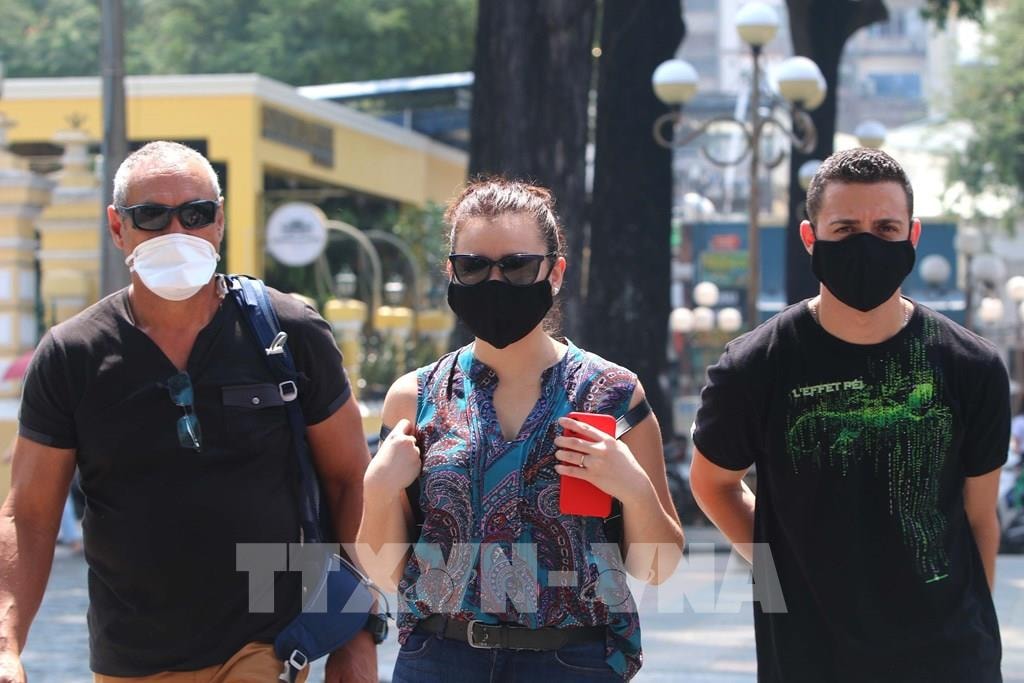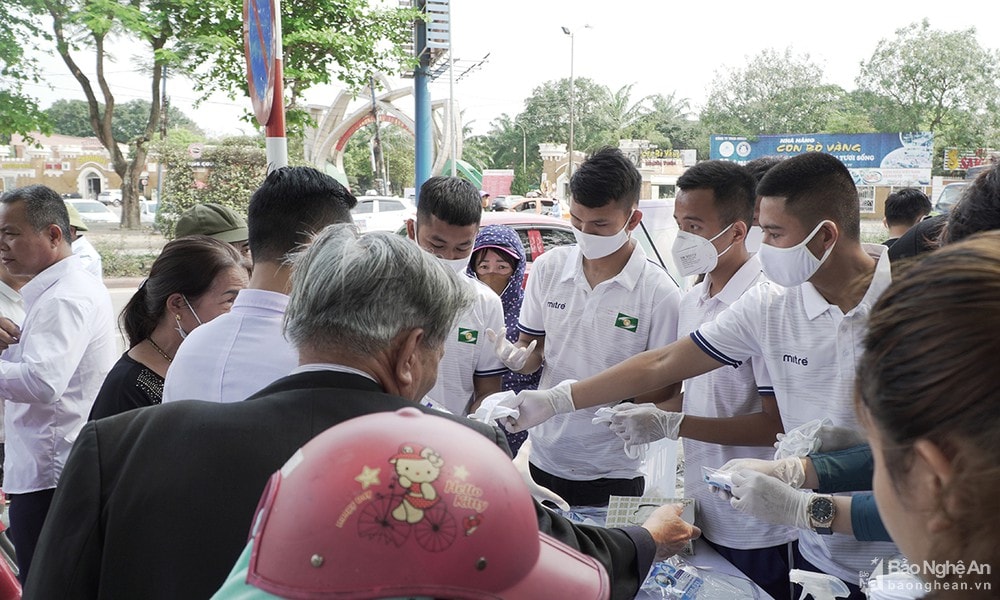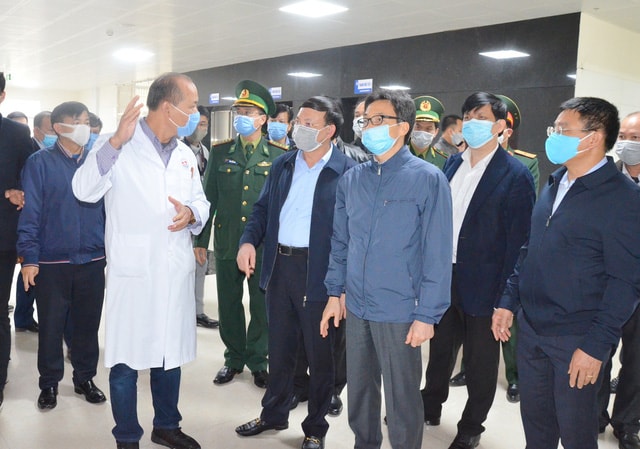During the Covid-19 pandemic, Russians in Vietnam feel protected
The article reflects the genuine and interesting emotions of Russian citizens who have been living and working in cities in Vietnam. In many different ways, they feel the efforts of Vietnamese authorities to prevent the Covid-19 epidemic and feel protected in this country.
 |
| Foreign tourists wear face masks while visiting Ho Chi Minh City. Photo: VNA |
One of the people mentioned by Sputnik is Vietnam studies expert and translator Natalya Nikokosheva, who has lived in Ho Chi Minh City for the past 16 years.
Natalya Nikokosheva writes:
"At first, when all people were talking about was masks and hand washing, the changes in the city were barely noticeable. Masks? Well, everyone wore masks before going out. First-time tourists must have been shocked: all the motorcyclists, especially the women, were completely covered up – goggles, masks, gloves, and hoods. But when you walk with scorched skin (33 degrees in the shade, 40 degrees in the sun) almost every day, or have to breathe the exhaust from the truck right in front of you, it becomes immediately clear why you need a mask.
Now everyone wears masks, even in taxis, in shops, offices and on the streets. The government and local authorities have taken a series of measures to disperse the population - canceling large gatherings, all organizations and companies are asking employees to work from home or send them on leave (preferably to the countryside, as many of my friends have left), students have been out of school for a long time, children are staying home and are expected to return in the summer, when the virus has receded.
 |
| SLNA players took to the streets to distribute free masks to Vinh city residents. Photo: Trung Kien |
Masks are available and distributed for free, I have been given dozens of them myself. Hand sanitizer sprays and gels are sold everywhere, disinfectants are displayed in all shops and offices, even in elevators. When you enter, don't forget to rub disinfectant on your hands. All the first cases of infection were caused by viruses brought into the area from abroad. Body temperature checks are applied to all incoming passengers and have now been changed to mandatory 14-day quarantine. New visas for Europeans and those from countries in the epidemic zone have been canceled, except for diplomatic and business visas, and even then, anyone entering Vietnam is the same and needs to be quarantined (at least at home)."
 |
| Deputy Prime Minister Vu Duc Dam inspects epidemic prevention work in Quang Ninh province. Photo: Giadinh.vn |
“They are doing it right here – identifying cases and those who need to be isolated, separating them into small groups or individually. Not keeping hundreds of people together like on the ship off the coast of Japan, and not waiting for instructions from above like in Europe.
Vietnam acted quickly, locked down quickly. I was glad to see the pictures of tourists isolated in the beach hotel. All the cases were described in detail in the media, newspapers continuously published news from the Ministry of Health and local authorities, everyone could follow and update everything.
Therefore, it is not by chance that WHO cites Vietnam as a typical example of how to act during a pandemic. In this country, the number of sick people is in the tens, not in the tens of thousands. Foreigners visiting Vietnam are always shocked by the dense flow of cars and motorbikes, now they will be surprised by the deserted streets. The atmosphere is similar to Tet when everyone returns to their hometowns to celebrate the Lunar New Year, reunite with their family members, the city is usually deserted for about ten days... So everything is normal. There is no tragedy at all."
"We need to think and not do anything stupid, not panic, but take reasonable measures. I am on the side of the optimists," Natalya Nikokosheva concluded.
From Ha Long, a Russian woman named Galina who lives there said that the locality confirmed 4 cases of infection, but prevention measures have been implemented since the beginning of February. Now schools are closed, gyms, hotels and restaurants are not working, the streets are deserted.
But, as Ms. Galina in the northern coastal city or Mr. Maxim from Ho Chi Minh City commented, problems have begun to arise in the tourism industry and the hotel-restaurant business associated with it in Vietnam, with many employees having to quit their jobs, as well as the closure of companies causing complications for foreign businessmen and experts, and schools closing causing difficulties for many teachers.
Maxim finds the restrictions on movement between countries that affect even "international families" to be too harsh. But, as he says, we understand that it is better to endure a period of separation than to get sick or lose loved ones.
In general, Russians living in Vietnam assess the situation with an optimistic view.
"We and our friends really hope that everything will end soon and the Vietnamese people will be happy to welcome thousands of tourists on the streets and at the country's scenic spots again."
